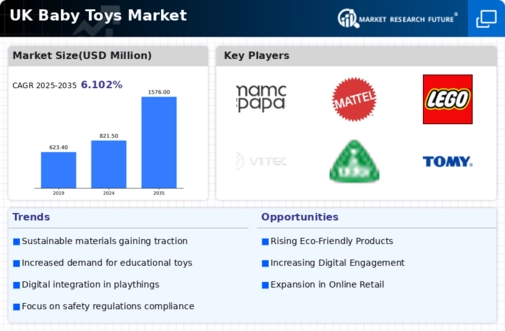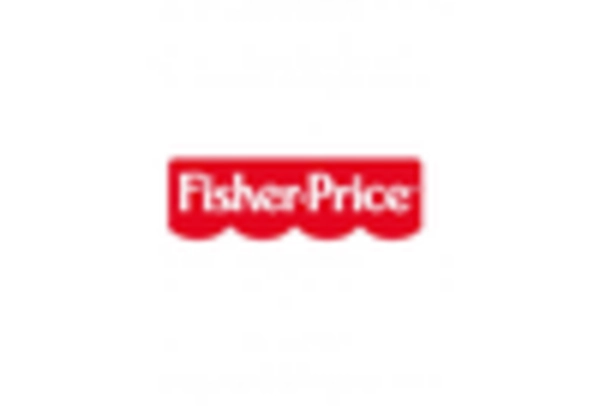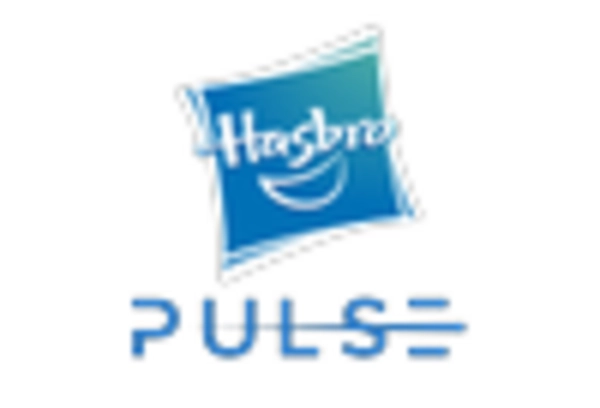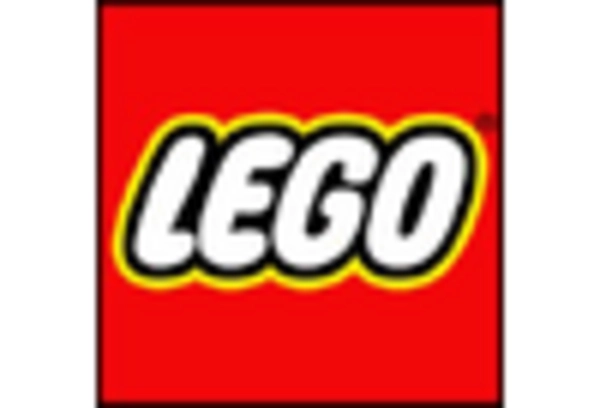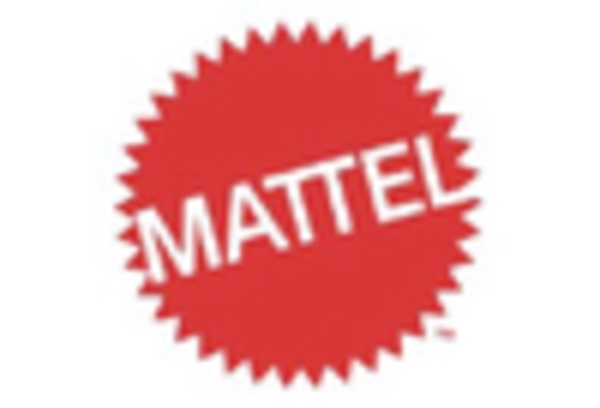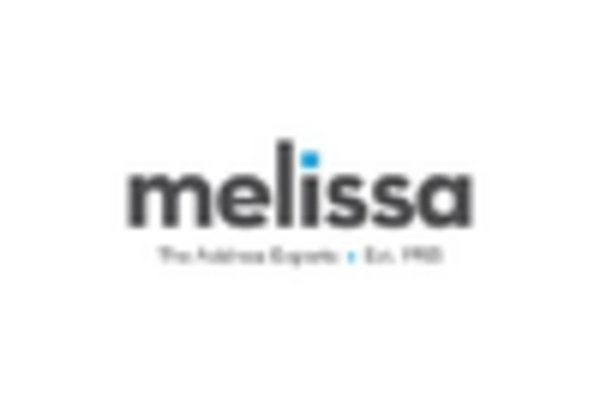Rise in Disposable Income
An increase in disposable income among families in the UK is significantly impacting the baby toys market. As parents have more financial resources, they are inclined to spend on high-quality, premium toys that offer safety and developmental benefits. This trend is reflected in the market, where the average spending on baby toys has risen by approximately 15% over the past two years. Families are prioritizing toys that are not only entertaining but also contribute to their child's growth and learning. Consequently, this rise in disposable income is expected to continue driving sales in the baby toys market, as parents are willing to invest in products that enhance their child's early experiences.
Growing Awareness of Child Development
There is a growing awareness among parents regarding the importance of child development, which is influencing purchasing decisions in the baby toys market. Parents are increasingly seeking toys that support various developmental milestones, such as motor skills, sensory exploration, and social interaction. This trend is evident in the rising demand for educational toys, which are designed to stimulate cognitive and physical development. Market data suggests that educational toys account for approximately 30% of total sales in the baby toys market, reflecting a shift towards more purposeful play. As awareness continues to grow, manufacturers are likely to focus on creating toys that align with developmental needs, further propelling market growth.
Technological Advancements in Toy Design
The baby toys market is experiencing a notable transformation due to technological advancements in toy design. Innovations such as interactive toys that incorporate artificial intelligence and augmented reality are becoming increasingly prevalent. These toys not only engage infants but also promote cognitive development through interactive play. The market for technologically advanced toys is projected to grow at a CAGR of approximately 10% over the next five years, indicating a strong consumer preference for high-tech options. As parents seek toys that offer educational value, the demand for such products in the baby toys market is likely to rise, driving manufacturers to invest in research and development to create more sophisticated offerings.
Focus on Safety Standards and Regulations
The baby toys market is heavily influenced by stringent safety standards and regulations that govern toy manufacturing. In the UK, compliance with safety regulations is paramount, as parents prioritize the safety of their children. Manufacturers are required to adhere to specific guidelines to ensure that toys are free from harmful materials and hazards. This focus on safety has led to an increase in the production of non-toxic, eco-friendly toys. These toys are becoming more popular among health-conscious consumers. As safety regulations evolve, companies in the baby toys market are likely to invest in quality assurance processes, which may increase production costs but ultimately enhance consumer trust and market growth.
Influence of Social Media and Online Communities
Social media and online communities are reshaping the baby toys market. Parents are increasingly turning to platforms like Instagram and parenting blogs for recommendations and reviews on toys. This trend has led to a surge in the popularity of certain brands and products, as social media serves as a powerful marketing tool. Approximately 40% of parents report discovering new toys through social media channels, reflecting a shift in purchasing decisions. As a result, brands are investing in social media marketing strategies to engage with consumers and promote their products, which is likely to enhance visibility and sales in the baby toys market.


